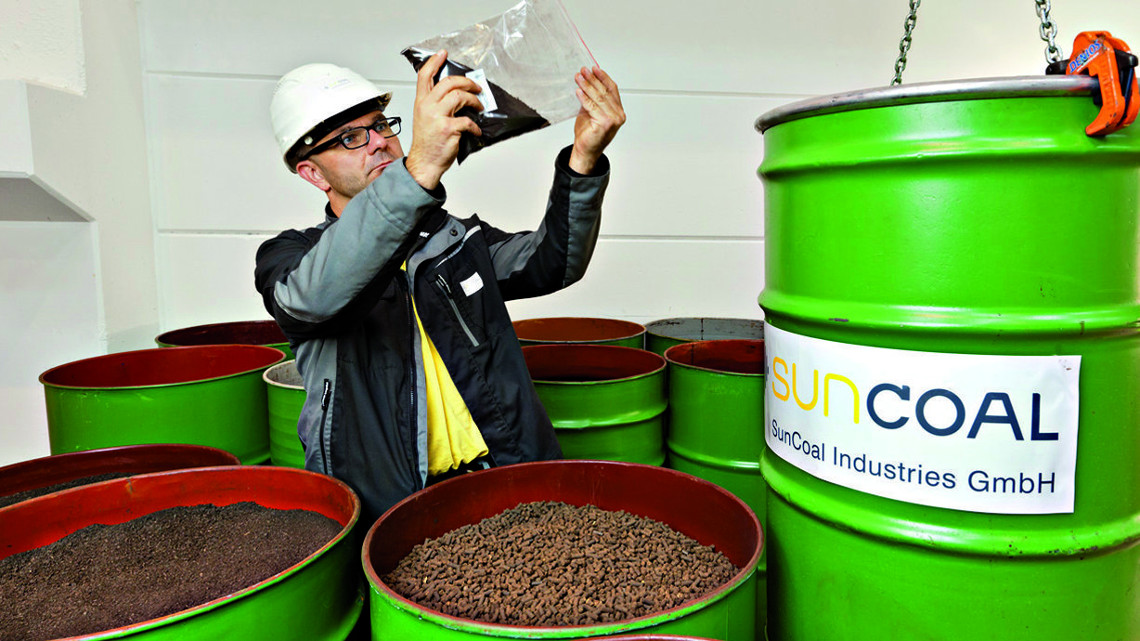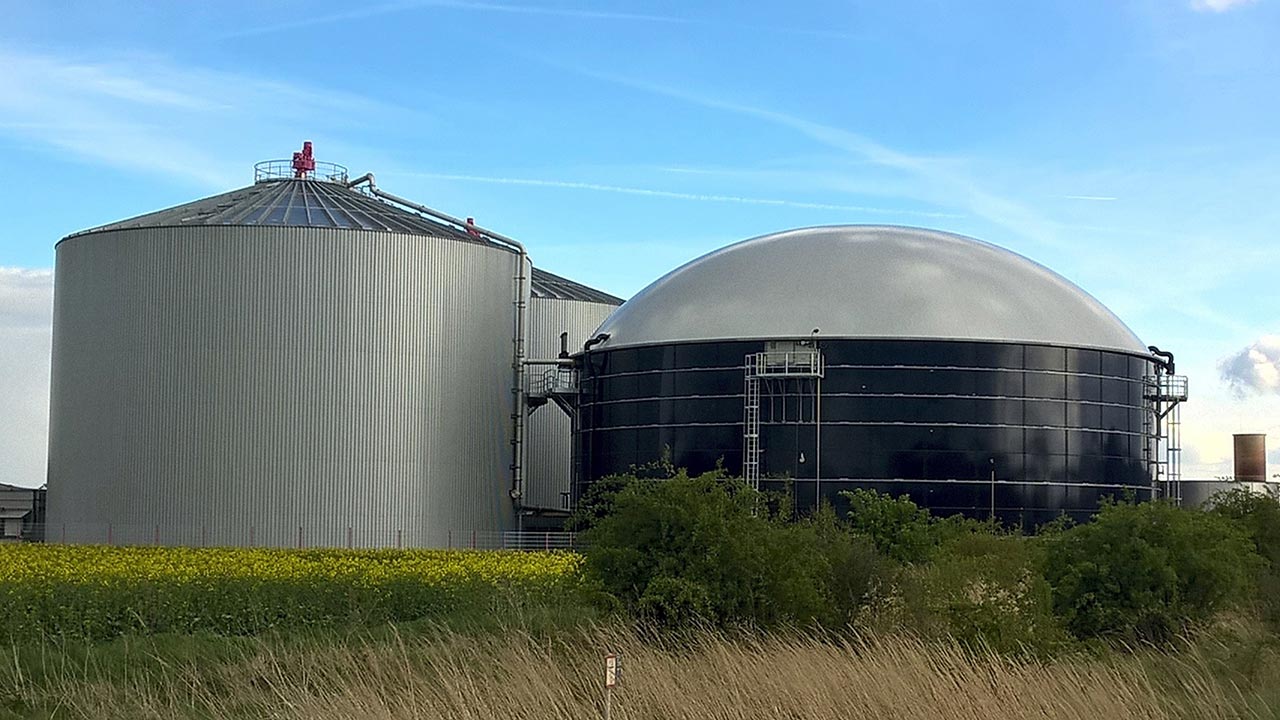Biocoal from organic waste as energy source
German engineers transform biowaste into high quality biocoal. In a second step syngas is generated to produce electricity.

Agriculture, food production, and many more result in a substantial amount of bio-based waste material. However, although they provide high energetic potential, they are thus far hardly used to generate energy. This is due to their high moisture content and inhomogeneous composition. Researchers from the Technical University of Munich together with SunCoal Industries have now developed a new technique to produce biocoal from these waste materials. Subsequently they turn the biocoal into syngas, which then fuels a “combined-heat-and-power” engine (CHP) that generates electricity and heat.
Biological residues turned into CO2-neutral energy
Biowaste is conventionally used to generate energy by direct combustion or fermentation in combination with a gas engine. However, organic waste such as agricultural waste or waste from food production is only usable to a limited extent. The materials are fibrous, with a very heterogeneous composition and a high moisture component. By means of a new process technique the energy potential in biogenic waste material can now be turned into biocoal that produces synthetic gas (syngas) and ultimately generates CO2-neutral energy.
Biocoal with 70% higher energetic value than raw material
SunCoal is using the hydrothermal carbonization process (HTC) to produce the high quality biocoal that is comparable to brown coal. The HTC works with pressure and heat in order to replicate the natural carbonisation process of biomass. The biocoal has a energetic value that is 70% higher than that of the starting materials. It is ground for the subsequent gasification process. An entrained-flow gasifier developed by the TU Munich then converts the biocoal dust into a high-energy syngas that can be used to drive the gas engine of a CHP. The HTC plant and the entrained-flow gasifier have successfully completed testing on a pilot scale. SunCoal is currently working on improving the process economically. That includes the future utilisation of waste heat from the processes and automating the process to a greater extent.
jmr


